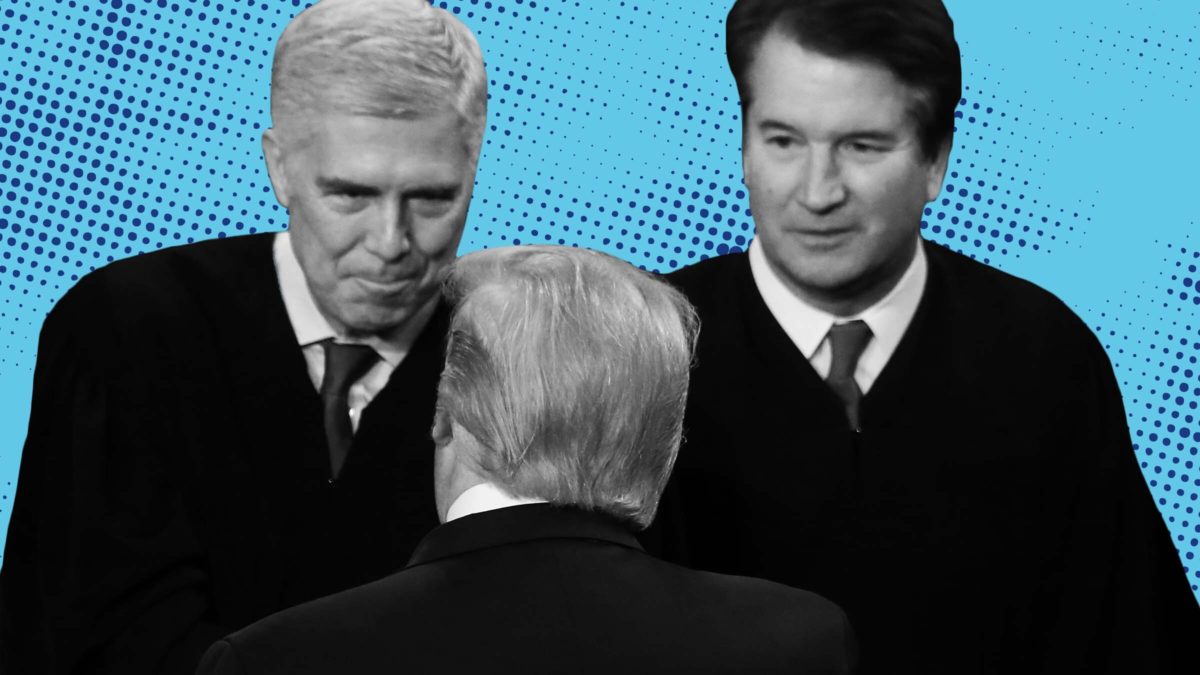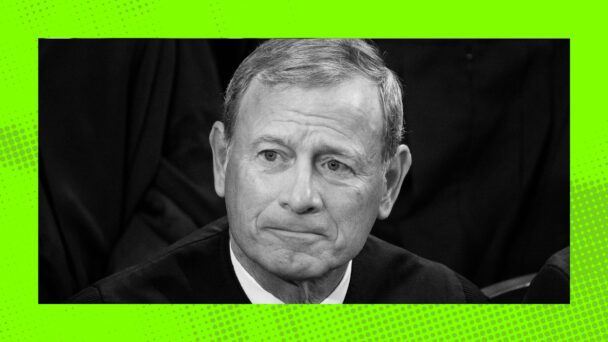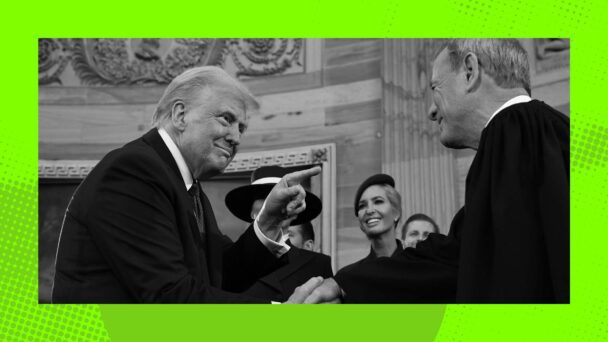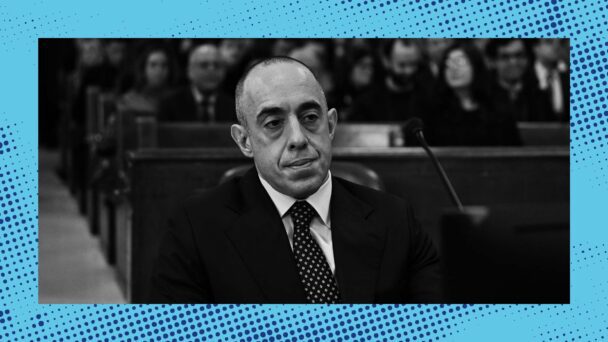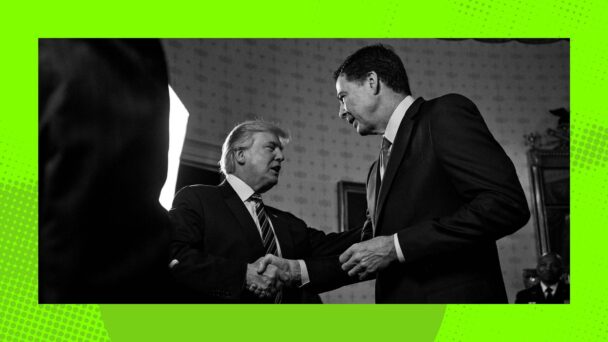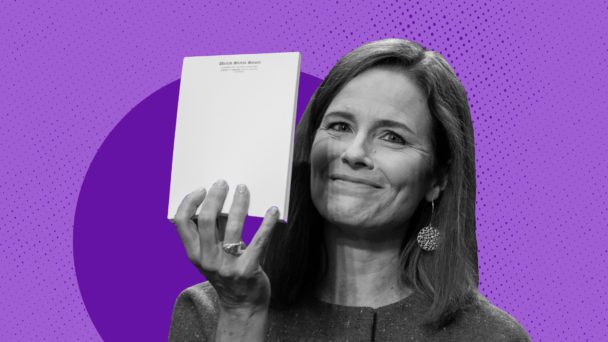Even for Solicitor General D. John Sauer, a man whose entire job is conjuring up half-baked legal theories to ratify President Donald Trump’s latest cartoonishly illegal stunts, Wednesday was a tough day at the office. Sauer’s task was to persuade the Supreme Court that as president, Trump enjoys “emergency” powers that allow him to unilaterally impose tariffs—taxes on imports—of any size, on any type of good, from any country, for any reason.
That would have been hard enough. But Sauer also had to do all that without undermining the six-justice conservative supermajority’s 2023 determination that, even in the midst of a pandemic-induced recession, President Joe Biden’s “emergency” powers did not allow him to offer partial student loan forgiveness to lower-income borrowers who badly needed it.
As you might expect, Sauer had a difficult time threading this needle: For different reasons, both the conservative and liberal justices sounded skeptical of Trump’s authority to unveil U.S. trade policy via randomly capitalized Truth Social post. But if the Court indeed invalidates the tariffs, how they do it will be just as important as the bottom-line result. And at oral argument, the conservative justices dropped plenty of hints about how they could hand Trump a narrow, technical loss in this case, while still preserving what matters most: their ability to reimpose sharp limits on executive power next time a Democrat is in the White House.
Biden grounded his student debt plan in a law that allows presidents to “waive or modify” legal obligations during “national emergencies.” But in Biden v. Nebraska, the Court ruled that this violated the major questions doctrine, which is the idea that presidents cannot use ambiguous statutory language to make “decisions of vast economic or political significance.” Writing for the six conservatives, Chief Justice John Roberts argued that surely, the enacting Congress would not have intended that “waive or modify” language to convey to Joe Biden the power to forgive billions of dollars in student loans. If Congress wants to let presidents “unilaterally alter large sections of the American economy,” Roberts said, it would have to “clearly” say so first.
The subject matter in the tariffs case, Learning Resources v. Trump, is of course different, but the framework is strikingly similar. Trump argues that his tariffs are authorized by the International Emergency Economic Powers Act of 1977, which is about responding to “unusual and extraordinary” threats to the U.S. economy. The law does not mention tariffs, but it does allow presidents to “regulate…importation”—language that Trump says is close enough. To date, the “threats” he has cited to justify his tariffs include deficits with U.S. trading partners, illegal fentanyl trafficking, and, most recently, a TV ad criticizing tariffs that made Trump upset.
My view is that a deadly pandemic that brought the global economy to a grinding halt fits more comfortably within the definition of “emergency” than the bare existence of trade deficits, which the U.S. has been running consistently for five decades. But you can see how both Supreme Court cases are basically about a president trying to implement his agenda by invoking vague language that authorizes him to act in an “emergency,” whenever he decides an “emergency” is in progress. The primary difference is that the Court’s six-justice conservative supermajority didn’t support Joe Biden, and was thus eager to put him in his place.
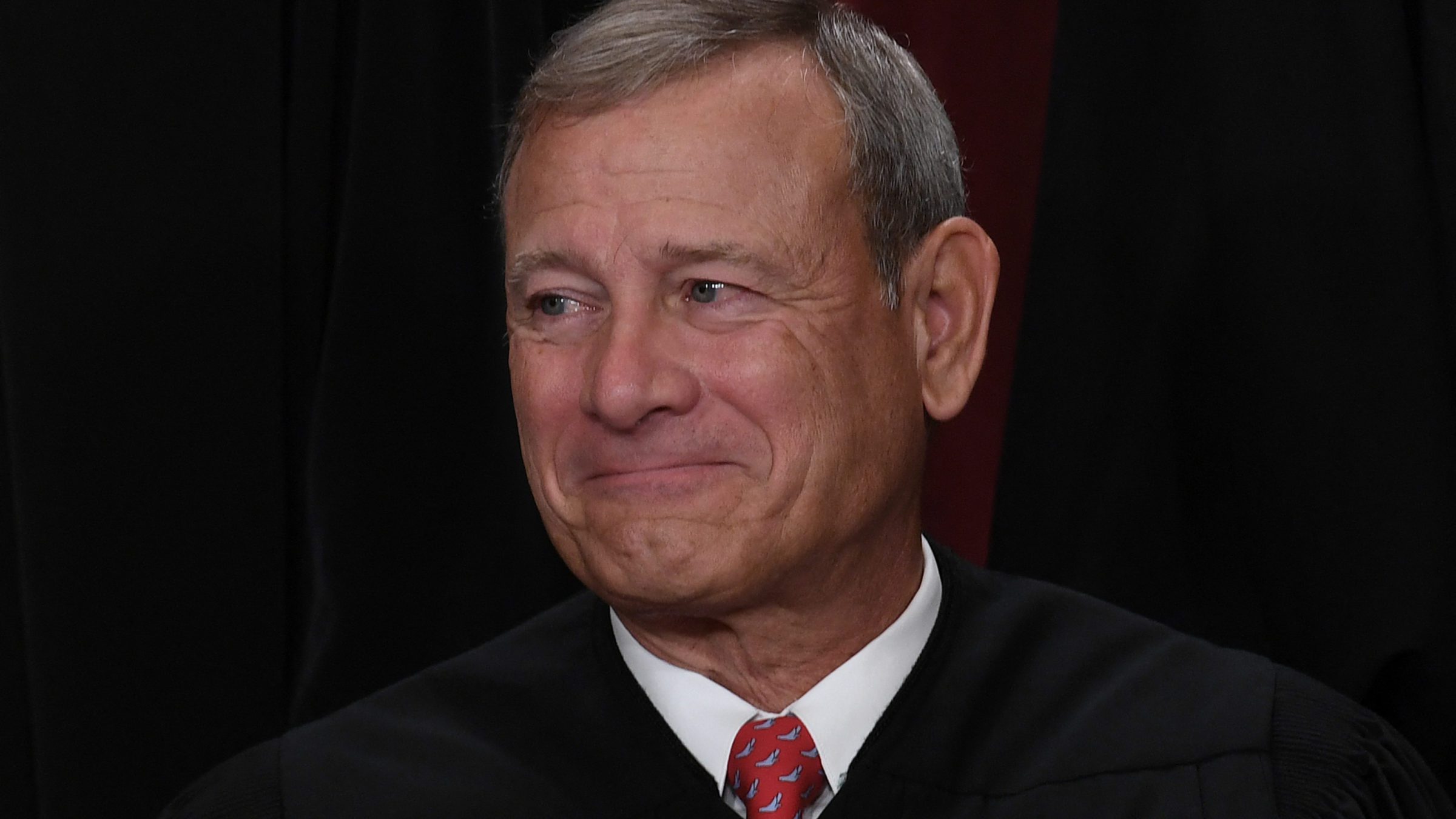
(Photo by OLIVIER DOULIERY/AFP via Getty Images)
At oral argument in Learning Resources, the liberal justices wasted little time pointing out how easy the tariffs case should be. “I just don’t understand this argument,” Justice Sonia Sotomayor said to Sauer. “Didn’t we in the Biden case recently say an emergency can’t make clear what’s ambiguous?” Sauer responded by trying to distinguish domestic education policy from the president’s power to conduct foreign affairs, but Sotomayor was unpersuaded. “So Biden could have declared a national emergency in global warming, and then gotten his student [debt] forgiveness to not be a major question? That’s all Biden would have had to do?” she asked.
Later, in an exchange with Justice Elena Kagan, Sauer argued that IEEPA’s requirement that presidents formally declare national emergencies would prevent them from abusing their tariff powers. Kagan scoffed, pointing out that since Trump re-took office, the same conservatives who read Biden’s “emergency” powers narrowly in 2023 have repeatedly allowed Trump to define the term however he sees fit. “We’ve had cases recently which deal with the president’s ‘emergency’ powers, and it turns out we’re in emergencies all the time, about, like, half the world,” Kagan said. “So that doesn’t seem like much of a constraint.”
In what had to be a welcome surprise for Kagan, this time around, the conservative justices were not quite as deferential to Trump as they’ve been over the past nine months. You can largely chalk this up to the fact that everyone who is not employed by a Stephen Miller-adjacent think tank agrees that allowing Trump to slap tariffs on countries at random will eventually plunge the country into a self-inflicted recession. For the conservatives, finding a reason to roll back the tariffs might be both the correct legal outcome and the prudent choice for the GOP’s electoral future—a chance for them to save their narrow House and Senate majorities from having to pay the price for Trump’s dumbest ideas.
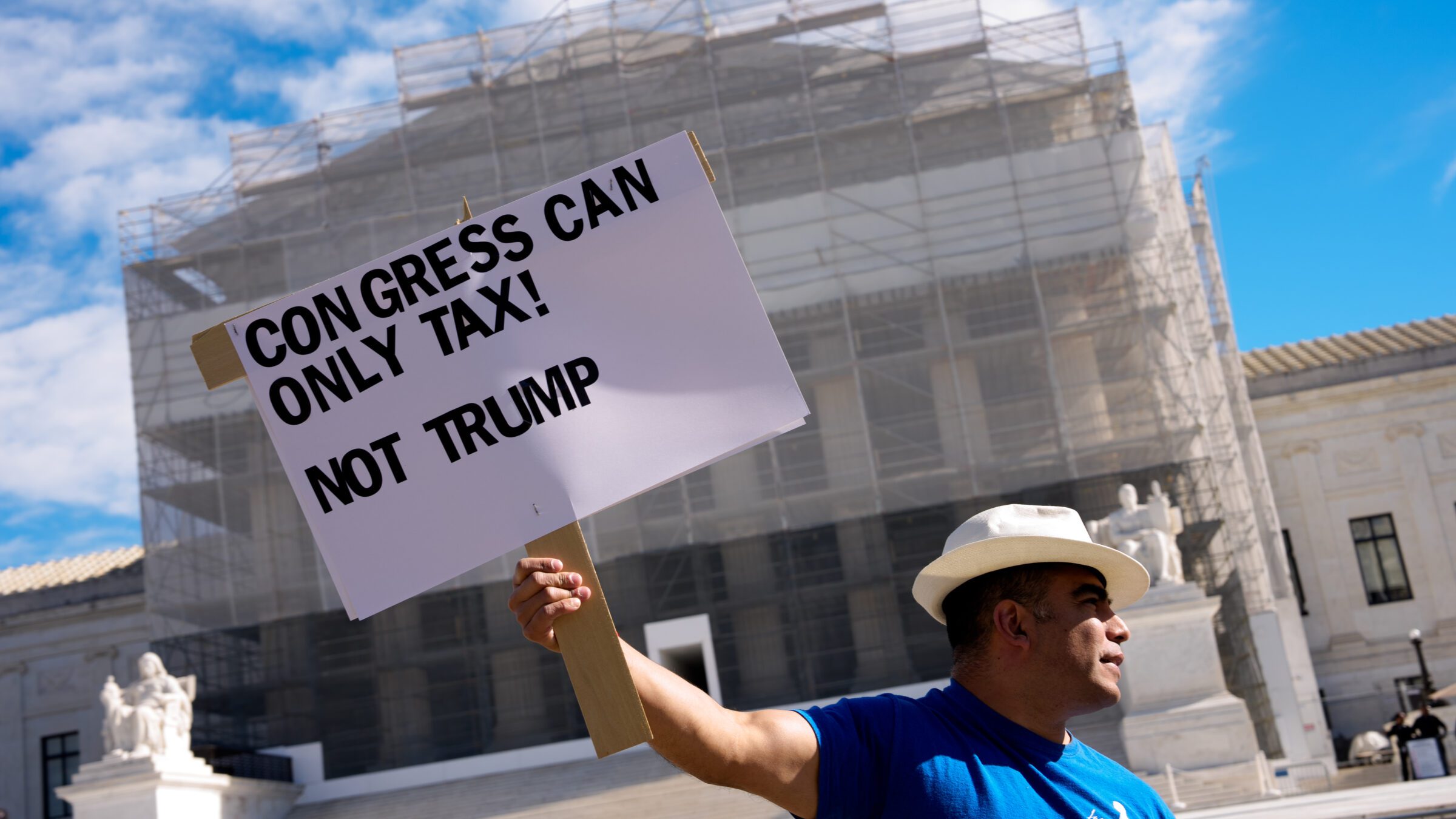
(Photo by Andrew Harnik/Getty Images)
That said, the liberal justices probably won’t be satisfied by the resolution here, because as hard as they worked to show that Trump should lose on an open-and-shut application of the major questions doctrine, the conservatives spent much of their allotted time thinking about other, simpler grounds on which they could resolve the case. Justice Brett Kavanaugh, for example, suggested that the fact that previous presidents never sought to impose tariffs under the IEEPA demonstrates that the IEEPA does not allow it. Justice Amy Coney Barrett brought up other federal laws that do empower presidents to impose tariffs as evidence that, by omitting that language from the IEEPA, Congress must not have intended to create any such power.
Roberts, who wrote the majority opinion in Biden v. Nebraska, at one point acknowledged that the major questions doctrine “might be directly applicable” to the tariffs. But he also zeroed on a more fundamental weakness of Trump’s case, for which Sauer had no good answer: It is hard to argue that a statute clearly, definitely gives a president the power to impose tariffs when the statute does not mention tariffs at all.
Maybe the easiest route for the conservatives would be to write an opinion emphasizing that even if the IEEPA gives presidents a lot of flexibility, tariffs go a step or two too far. Justice Neil Gorsuch made this point at the very end of oral argument, in the form of a “question” that was, in the time-honored tradition of law school gunners everywhere, really more of a comment. “It does seem to me that the really key part of the context here is the constitutional assignment of the taxing power to Congress—that the power to reach into the pockets of the American people is just different, and it’s been different since the founding,” Gorsuch said. “Isn’t that what’s really animating your argument today?”
The lawyer for one of the challengers, to his credit, understood that with a justice making the case for him, he didn’t need to add anything further. “I think it’s a huge piece of what’s animating our argument. Thank you,” he said.
A majority opinion in Learning Resources that stops Trump from ruining the economy would be an unambiguously good result, whatever the rationale. But the conservative justices do not need to rely on a robust version of the major questions doctrine—their most valuable tool for reining in progressive policies and building political power—in order to do so. In their briefs, the challengers to the tariffs offered their major questions doctrine arguments last, and only to “reinforce” their textual arguments, which does not suggest that they are banking on the conservatives applying the rule consistently, to Democratic and Republican presidents alike. The challengers’ lawyer, Neal Katyal, brought up the doctrine on Wednesday, but quickly steered the justices back to his principal argument: “It comes down to common sense,” Katyal said.
The reason the conservative justices love the major questions doctrine so much is that it is so malleable in their hands: With six votes, they have total control over when and how and why to say the magic words and veto policies they don’t like. The less they say about the major questions doctrine in this case, the easier it will be for them to revive the doctrine next time they really, really want to limit executive power—that is, whenever a Democratic president is foolish enough to try and exercise it.
